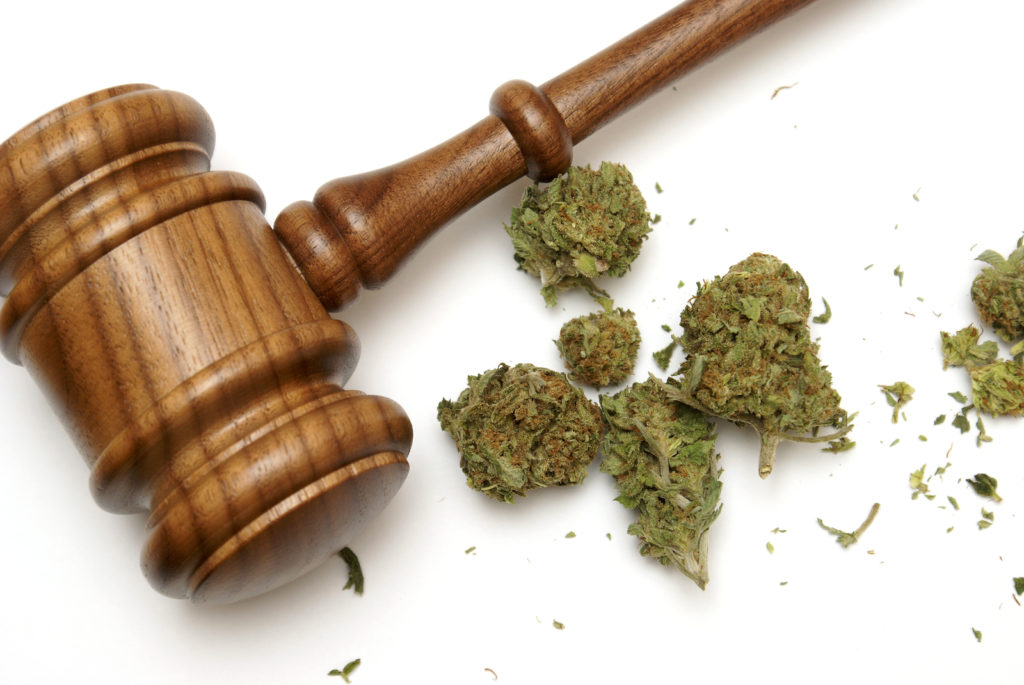The Utah Drug Paraphernalia Act makes the sale, use, delivery, and possession of drug paraphernalia illegal. If you or your son or daughter was arrested for having drug paraphernalia, such as a bong, pipe, or hypodermic needle, it is crucial that you have the benefit of skilled legal representation from an experienced Salt Lake City paraphernalia lawyer.
To set up a free legal consultation, call Utah drug crime attorney Darwin Overson right away at (801) 758-2287. Your information will be kept confidential. Darwin has over 16 years of experience, and has represented thousands of adult and juvenile defendants in Salt Lake City and throughout Utah.

What Objects Are Considered Drug Paraphernalia Under Utah Code 58-37a-3?
Under Utah Code § 58-37a-3, paraphernalia is broadly defined to include “any equipment, product, or material used, or intended for use, to plant, propagate, cultivate, grow, harvest, manufacture, compound, convert, produce, process, prepare, test, analyze, package, repackage, store, contain, conceal, inject, ingest, inhale, or to otherwise introduce a controlled substance into the human body.”
This definition applies to a variety of Schedule I, Schedule II, Schedule III, Schedule IV, and Schedule V drugs, including but not limited to:
- Adderall (Dextroamphetamine)
- Bath Salts
- Cocaine
- Demerol (Meperidine)
- Dilaudid (Hydromorphone)
- Fentanyl
- Heroin
- Ketamine
- LSD (Acid)
- Marijuana (Weed, Pot, Cannabis)
- MDMA (Ecstasy, E, Molly)
- Methamphetamine
- OxyContin (Oxycodone)
- PCP (Angel Dust)
- Psilocybin Mushrooms
- Vicodin (Hydrocodone)
In addition to supplying a broad definition, the statute also lists specific items and objects that are deemed paraphernalia. These items and objects include, but are not limited to, the following:
- Any kits or “grow kits” used to plant, grow, cultivate, or harvest marijuana or other plant-based controlled substances.
- Any kits used to manufacture, produce, compound, or otherwise prepare or synthesize narcotics that cannot be grown.
- Baggies, envelopes, foil packets, or other drug containers.
- Devices used to increase drug potency.
- Devices used to test drug purity or quality.
- Grinders or sifters used to remove seeds, stems, and twigs from marijuana buds.
- Needles and syringes used for injecting drugs intravenously.
- Smoking devices, including bongs, pipes, carburetors (“carbs”), chillums, one-hitters, and roach clips used to hold joints.
- Substances used to dilute or “cut” controlled substances.
- Weigh scales for measuring out drug quantities.

Criminal Penalties for Use, Sale, or Possession of Drug Paraphernalia in Salt Lake City
There are two types of offenses under Utah’s criminal laws: misdemeanors and felonies. A conviction of either can result in incarceration, fines, and a criminal record. While both are serious matters, felonies are particularly urgent as the penalties can be substantially greater than those imposed for a misdemeanor.
Crimes related to drug paraphernalia can be misdemeanors or felonies depending on the nature of the offense. Most crimes related to drug paraphernalia are charged as Class B or Class A misdemeanors, but felony charges are possible when minors are involved. Specifically, Utah Code § 58-37a-5(3) makes it a third degree felony to deliver paraphernalia to someone who is under the age of 18, if the person who allegedly delivered the paraphernalia was also, at the time of the offense:
- At least 18 years old.
- At least three years older than the recipient.
Utah criminal penalties for a third degree felony may include a prison sentence of up to five years, and a fine of up to $5,000.
The penalties for a Class A misdemeanor may include a fine of up to $2,500, and a jail sentence of up to one year.
The penalties for a Class B misdemeanor include up to six months in jail and up to $1,000 in fines.
Depending on factors like the defendant’s age and prior criminal history, he or she may be placed on probation, be required to complete community service, be required to attend drug counseling, and/or temporarily have their driver’s license suspended. Additionally, the defendant will receive a criminal record, which can make it harder to get hired, apply for scholarships, get student loans, join the military, earn professional licenses, or seize other valuable opportunities.
Furthermore, because paraphernalia is often linked to the presence of controlled substances, it is fairly common for defendants in paraphernalia cases to also be charged with related drug crimes, such as simple possession of controlled substances (possession for personal use), or possession with intent to distribute (drug dealing and sales).
Arrested for Having a Bong or Pipe? Contact an Experienced Defense Lawyer
Utah paraphernalia charges can have disastrous consequences for your reputation and professional career. Juvenile drug charges against your teenage son or daughter could derail their academic or sports achievements, and make it harder to get accepted into their college of choice.
It is critical that you take aggressive measures to fight the charges, but you don’t have to do it alone. Get experienced representation from a skilled and knowledgeable Utah paraphernalia defense attorney.
To set up a free legal consultation, call the law offices of Overson Law right away at (801) 758-2287. If your loved one is currently in custody, Darwin is able to make county jail and holding center visits.






